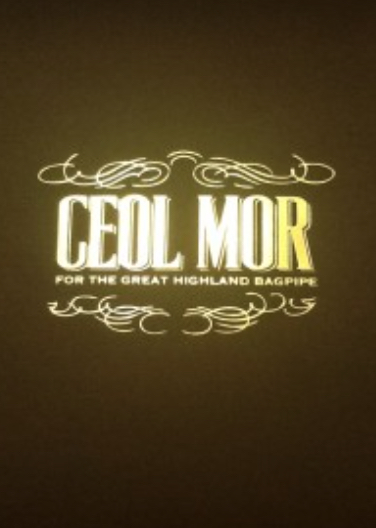
By Jimmy McIntosh MBE
I do not usually get to listen to the piping programmes from Scotland but was fortunate to hear some of the competitors’ tunes from the Northern Meetings. I also recently spent several weeks in my native country and heard recordings from Lorient Piobaireachd and also the Piping Centre Masters contest. I was quite disappointed with the standard of what I heard.
I don’t know what has happened to the teaching of piobaireachd; is there enough of it taking place in Scotland? It appears that the basic fundamentals of phrasing, rhythm, and shading are not being taught or shown.
After the Urlar, the Variations seem to be played straight through like exercises, with little attention given to the values of the theme notes, proper pulsing, pausing at the ends of lines, and at the finish of variations. The variations bear little relationship to the theme. (more)
[wds id=”2″]Many years ago it was brought to our attention that judges, in determining their results, are responsible for the future direction of piping and piobaireachd in particular.
What then if those in the prize list are not displaying the aforementioned fundamentals? Will we lose the historic artistry with which these melodies were composed?
Prizes should not go solely to those with perfect fingering and good bagpipes. In addition to these vital attributes, there should be music properly expressed. This is clearly referred to in the ‘Judge’s Companion’ handbook compiled and edited by Robert Wallace for the College of Piping nearly fifteen years ago. On pages 102 and 103, he clearly states that, major errors excepted, the expression of the tune, its musical interpretation, should ‘win the day’. I could not agree more.

Jimmy McIntosh is a highly respected figure in world piping. He is a disciple of the ‘Masters of Piobaireachd’ Bob Brown and Bob Nicol, Balmoral, and two years ago produced a valuable book documenting their instruction. A Gold Medallist and teacher of renown, Jimmy lives with his wife Joyce in South Carolina, USA
I feel there is a responsibility on our Judge’s Panel to do something to remedy this. In the Senior, Gold and Silver Medal contests there are usually eight tunes set by the Piobaireachd Society.
Would it not be a good idea to ask the judges chosen to adjudicate those contests to come together for one or two seminars beforehand where the set tunes are analyzed with discussion on the interpretations desired?
Perhaps they should listen to recordings of some of our past piobaireachd masters and also consider the different and acceptable ways of playing the tunes and talk about the major points to be listening for. That way they would all be on the same page. (more)
In contrast, as it stands today, three judges arrive from all over Scotland, come together and sit down at a table for hours, with no time to talk over the tunes etc.
This method does not seem the best approach for the two biggest contests in the world of piping, Oban and Inverness. It can turn the winning of the top awards, including the Gold Medal, into a lottery.
Competitors practice for hours and spend countless hundreds of dollars and pounds to travel from afar for the honour to compete in these big contests in Scotland. Surely we could have our judges just as well prepared, as a cohesive group, before they sit down to judge together.
- Agree or disagree? Please comment below.















One wonders if the competitive world encourages and supports excellence in artistic expression.
I was listening to a recording Amy Garson made for me some time ago, singing Lament for Donald Duaghal MacKay and then I listened to another recording of her playing Beloved Scotland. Both were lovely. Anything of beauty endures.
Hello Glen
I agree with you 100%, the interpretation of the ceol mor is frozen, lack of expression, standardised sound and timbre, playing like one reading a promptor, all these aspects make the rendition very bland
The judgements MUST take account of the performer personality, and encourage him to get a more personal sound, as a soloist, not as a band piper, that’s another kettle of fish, but the standardisation has come too far and it is boring at times to listen such a flat playing
It’s been going on for a long time, time, now to renew the beautiful and sensitive playing of ceol mor
Although having no gold medals myself, my Piobaireachd Instructors were Duncan Johnstone, Jimmy McColl and Big Angus Macdonald.
I must agree with Jimmy MacIntosh that the pipes are now “too perfect”. Each one sounding the same with little personal variance.
And more importantly the music has become “Too Perfect” as well. With players afraid to take a chance on adding some personal expression and musical phrasing to the perfect fingers and perfect bagpipe and metronome like phrasing of today’s piobaireachd.
If you play the phrasing like the Bibs of Balmoral, or as shown on the Donald MacLeod recordings, or the beautiful phrasing of Jimmy MacIntosh himself…… good luck getting on today’s prize lists
My trip into the big music is a new venture. My tutor emphasizes that the tune is played with the feeling and interpretation of the musician. He does emphasize that the pulsing and emotion in each measure should match and that phrasing emotions need to be identified and applied in the tune
Two very well expressed opinions here. However, it is right that the lyrical aspects of Ceol Mor should be the true fundamental of the art. Afterall, we should always recognise that we are musicians first.
I absolutly, agree with you Janette
The ceol mor has become ” frozen” , standardised, at a time, to to suit to judges who were obviously not as experts as they would had to bee, seeking more technicity than expression and personal feeling from the performers
Yes, I to think that it is great time to change the criters of judging, the story has been repeating for a far too long time
Hello evreybody
I totally agree with Jimmy, and that fact rminds me a phrase from John MacLellan who wrote, about the judges, in his ‘Piper’s Handbook’: If you don’t know, don’t judge
The ceol mor is MUSIC before all, the technic and tuning are mediums to the service of music, but are not an end in itself, even if fined tuned pipes and nimble fingering are to be of first order, but NEVER forget the musicality of the tunes, playing ceol mor involves much feeling and is not an announced recitation
Jean Michel
These points need to be respected… judging is a privilege and as such, needs to be taken with utmost respect to our art form. Several performances at recent events surprised me in there lack of musicianship, in the Urlar… yet they scored were in the prizes by the judges. Those that I thought were quite well musically presented didn’t place at all. Reform is important… consultation between judges has long been needed… maybe this is all that’s necessary to protect all idioms in piping.
Interesting, but would the approach above not remove some of the freedom to express the tune as the player sees fit, and instead impose or seek an interpretation too bound to the past, or to how three particular judges think a tune should be interpreted. Is it not time to free the form from its shackles, and let modern day musicians, interpret and express according to the times we live in, and the players individual personalities???
I will not comment on the playing at the above contests as it not my place to do so and don’t have seniority to do so except to say that Jimmy McIntosh is echoing exactly what my present piobaireachd teacher (a senior judge at Oban and Inverness for many years) has exhorted to me to do time and time again when playing in front of him at our fortnightly lessons. Indeed if one logs in to the Piobaireachd Society downloads (thank god for these recordings) and one listens to the likes of Hector MacFadyen or John MacFadyen or John MacDonald of Inverness you’ll see clearly what Jimmy McIntosh is trying to impart here. I always look forward to listening avidly to these old recordings for better understand the music and indeed has given me a much better depth of understanding of the tune I am currently on and play better as a result. I cannot but echo what he has mentioned.